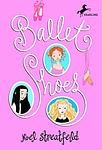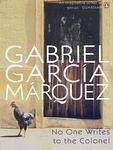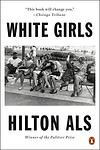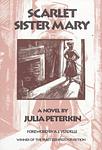The Greatest "Fiction, Ethics" Books of All Time
Click to learn how this list is calculated.
This list represents a comprehensive and trusted collection of the greatest books. Developed through a specialized algorithm, it brings together 300 'best of' book lists to form a definitive guide to the world's most acclaimed books. For those interested in how these books are chosen, additional details can be found on the rankings page.
Genres
The "Ethics" category in books encompasses a broad range of works that delve into the philosophical study of morality, values, and human conduct. It explores the principles that govern individuals' behavior and the moral frameworks that shape societies. Books in this genre often tackle questions of right and wrong, justice and injustice, virtue and vice, as well as the ethical dilemmas that arise in various aspects of life, including business, medicine, technology, and personal relationships. They may present historical perspectives on ethical thought, analyze contemporary moral issues, or offer guidance on leading a moral life. This category includes texts from ancient philosophical treatises to modern-day commentaries, featuring works by ethicists, philosophers, theologians, and other thinkers who seek to understand and influence how we make decisions that impact ourselves, others, and the world around us.
Countries
Date Range
Reading Statistics
Click the button below to see how many of these books you've read!
Download
If you're interested in downloading this list as a CSV file for use in a spreadsheet application, you can easily do so by clicking the button below. Please note that to ensure a manageable file size and faster download, the CSV will include details for only the first 500 books.
Download-
1. Brave New World by Aldous Huxley
Set in a dystopian future, the novel explores a society where human beings are genetically bred and pharmaceutically conditioned to serve in a ruling order. The society is divided into five castes, each with its specific roles. The narrative follows a savage who rejects the norms of this new world order and struggles to navigate the clash between the values of his upbringing and the reality of this technologically advanced, emotionless society. His resistance prompts a deep examination of the nature of freedom, individuality, and happiness.
-
2. Lord of the Flies by William Golding
A group of British boys are stranded on an uninhabited island after their plane crashes during wartime. Initially, they attempt to establish order, creating rules and electing a leader. However, as time passes, their civility erodes, and they descend into savagery and chaos. The struggle for power intensifies, leading to violence and death. The novel explores themes of innocence, the inherent evil in mankind, and the thin veneer of civilization.
-
3. White Teeth by Zadie Smith
This novel follows the lives of two friends, a working-class Englishman and a Bangladeshi Muslim, living in London. The story explores the complex relationships between people of different races, cultures, and generations in modern Britain, with themes of identity, immigration, and the cultural and social changes that have shaped the country. The narrative is enriched by the characters' personal histories and the historical events that have shaped their lives.
-
4. The Road by Cormac McCarthy
In a post-apocalyptic world, a father and his young son journey through a desolate landscape, struggling to survive. They face numerous threats including starvation, extreme weather, and dangerous encounters with other survivors. The father, who is terminally ill, is driven by his love and concern for his son, and is determined to protect him at all costs. The story is a haunting exploration of the depths of human resilience, the power of love, and the instinct to survive against all odds.
-
5. Roots by Alex Haley
This groundbreaking historical novel follows several generations of an African American family, beginning with Kunta Kinte, a man captured in Gambia in the 18th century and sold into slavery in the United States. Through Kinte and his descendants, the narrative explores the brutal realities of slavery and its aftermath, the struggle for freedom and civil rights, and the perseverance of a family through immense hardship. The story is based on the author's own family history, making it a significant work in the exploration of African American heritage and identity.
-
6. Ballet Shoes by Noel Streatfeild
"Ballet Shoes" is a charming tale of three adopted sisters, Pauline, Petrova, and Posy, living in 1930s London. Raised by their guardian Sylvia and her nurse Nana, the girls attend a performing arts academy where each discovers her unique talent. Pauline shows a knack for acting, Petrova has a passion for cars and machinery, while Posy is a natural ballet dancer. The story follows their struggles and triumphs as they strive to make their dreams come true, all while navigating the challenges of growing up.
-
7. Quicksand by Nella Larsen
"Quicksand" is a semi-autobiographical novel about a mixed-race woman named Helga Crane who, feeling out of place in both African-American and white societies, embarks on a journey of self-discovery. From the Southern United States to Denmark and back, she struggles with racial identity, sexual repression, and societal expectations, eventually marrying a reverend and becoming disillusioned with her life as a preacher's wife in the rural South. The novel explores themes of racial identity, class, and gender in the early 20th century.
-
8. No One Writes to the Colonel by Gabriel García Márquez
This novel centers around an impoverished, retired colonel who has been waiting for many years for the pension he was promised. Despite his increasing desperation and the urging of his wife, the colonel remains hopeful and proud, refusing to sell his only valuable possession, a rooster that he plans to enter in a cockfight. The story explores themes of poverty, pride, and the struggle for dignity amid difficult circumstances.
-
9. The Inheritance of Loss by Kiran Desai
This novel explores themes of love, loss, and the human struggle for identity amidst political unrest. Set in India during the Nepalese movement for an independent state, the narrative follows the lives of a retired judge living in the Himalayas, his granddaughter, and his cook. As the political situation worsens, each character must grapple with their own personal issues, including the judge's regret over his failed marriage and his granddaughter's struggle to find her place in the world. The cook, meanwhile, dreams of a better life for his son in the United States. The narrative weaves together these individual stories to create a poignant tapestry of human resilience in the face of adversity.
-
10. Deep Rivers by José María Arguedas
"Deep Rivers" is a novel that follows the life of a young boy who is caught between the Spanish and indigenous cultures of Peru. The protagonist is sent to a Catholic boarding school, where he experiences the harsh realities of social and racial divisions within the country. As he navigates these challenging circumstances, he develops a deep connection with the indigenous Andean culture and its spiritual relationship with nature. The novel is a profound exploration of identity, culture, and the struggle of indigenous peoples in a colonized society.
-
11. The Triple Mirror of the Self by Zulfikar Ghose
"The Triple Mirror of the Self" explores the journey of a man who is trying to understand his complex identity. The protagonist, a writer, embarks on a journey to understand his past and his heritage, which is spread over three continents: Asia, Europe, and America. As he travels through different countries, he experiences culture shock, confusion, and a sense of displacement, but also gains a deeper understanding of himself. The book explores themes of identity, self-discovery, and the complexities of cultural heritage.
-
12. Elizabeth Costello by J M Coetzee
The novel follows the life of Elizabeth Costello, a renowned Australian writer, as she navigates through her twilight years. Through eight different narratives, the book explores her perspectives on various topics, including animal rights, the nature of evil, and the difficulty of understanding oneself. The novel is a profound exploration of the human condition, the nature of storytelling, and the conflict between life and art.
-
13. A Case of Conscience by James Blish
In this science fiction novel, a Jesuit priest and biologist, part of a four-man scientific commission, grapples with a moral dilemma after studying the inhabitants of the planet Lithia. The Lithians are an advanced, peaceful reptilian species living in an apparent utopia without any concept of religion or God. The priest's crisis deepens as he questions whether the Lithians' society is inherently evil, a creation of Satan designed to challenge faith, or if it can coexist with human and Christian values. His quandary is compounded when he is given a Lithian egg to take back to Earth, which hatches into a creature that could influence the future of humanity and challenge the very foundations of his beliefs.
-
14. Falling Free by Lois McMaster Bujold
In this science fiction narrative, the story revolves around an engineer who is assigned to a space station where genetically engineered humans, designed with four arms and no legs for zero-gravity work, are being bred by a corporation for economic gain. When the company decides to abandon the project, viewing these beings, known as "quaddies," as obsolete and a liability, the engineer faces a moral dilemma. He must choose between his own safety and career or the welfare of the quaddies. Ultimately, he decides to rebel against the corporation, leading a daring escape plan to save the quaddies from being decommissioned and to find them a new home where they can live free.
-
15. White Girls by Hilton Als
"White Girls" is a collection of essays that explore the concept of "white girls" as the author sees it - a cultural and racial construct, rather than a literal description. The book delves into the author's personal experiences, pop culture, history, and his own identity as a gay black man. It examines figures from pop culture, literature, and the author's personal life, including Truman Capote, Michael Jackson, and the author's own sister, to explore themes of race, gender, identity, and the love and loss that comes with friendship.
-
16. Black and Blur by Fred Moten
"Black and Blur" is an exploration of black studies, performance, aesthetics, and politics. It delves into the intersections of critical theory, social science, and philosophy, challenging traditional definitions and understandings of blackness. The book uses an array of topics such as contemporary art, music, and literature to deconstruct and critique the conventional frameworks of authority, identity, and culture. It presents a new perspective on the complexities of blackness and the potential for social and political change.
-
17. Scarlet Sister Mary by Julia Peterkin
This novel is a powerful portrayal of the life of an African American woman named Mary, who grows up in a religious community in the South during the early 20th century. Mary, who is initially a devout follower of her faith, is led astray by her desires and ends up bearing many children out of wedlock. Her community ostracizes her for her transgressions and she must find a way to survive and care for her children on her own. The story explores themes of faith, sin, redemption, and resilience in the face of adversity.
-
18. Masterworks of the Classical Haida Mythtellers by Robert Bringhurst
"Masterworks of the Classical Haida Mythtellers" is a collection of stories from the Haida people, an indigenous group from the Pacific Northwest Coast of North America. The book provides a deep and insightful exploration of Haida mythology and culture through its rich oral literature. The author has painstakingly translated these tales from the original Haida language into English, maintaining their poetic and narrative essence. The collection serves as a significant contribution to the preservation and understanding of Haida cultural heritage and indigenous storytelling traditions.
Reading Statistics
Click the button below to see how many of these books you've read!
Download
If you're interested in downloading this list as a CSV file for use in a spreadsheet application, you can easily do so by clicking the button below. Please note that to ensure a manageable file size and faster download, the CSV will include details for only the first 500 books.
Download
















